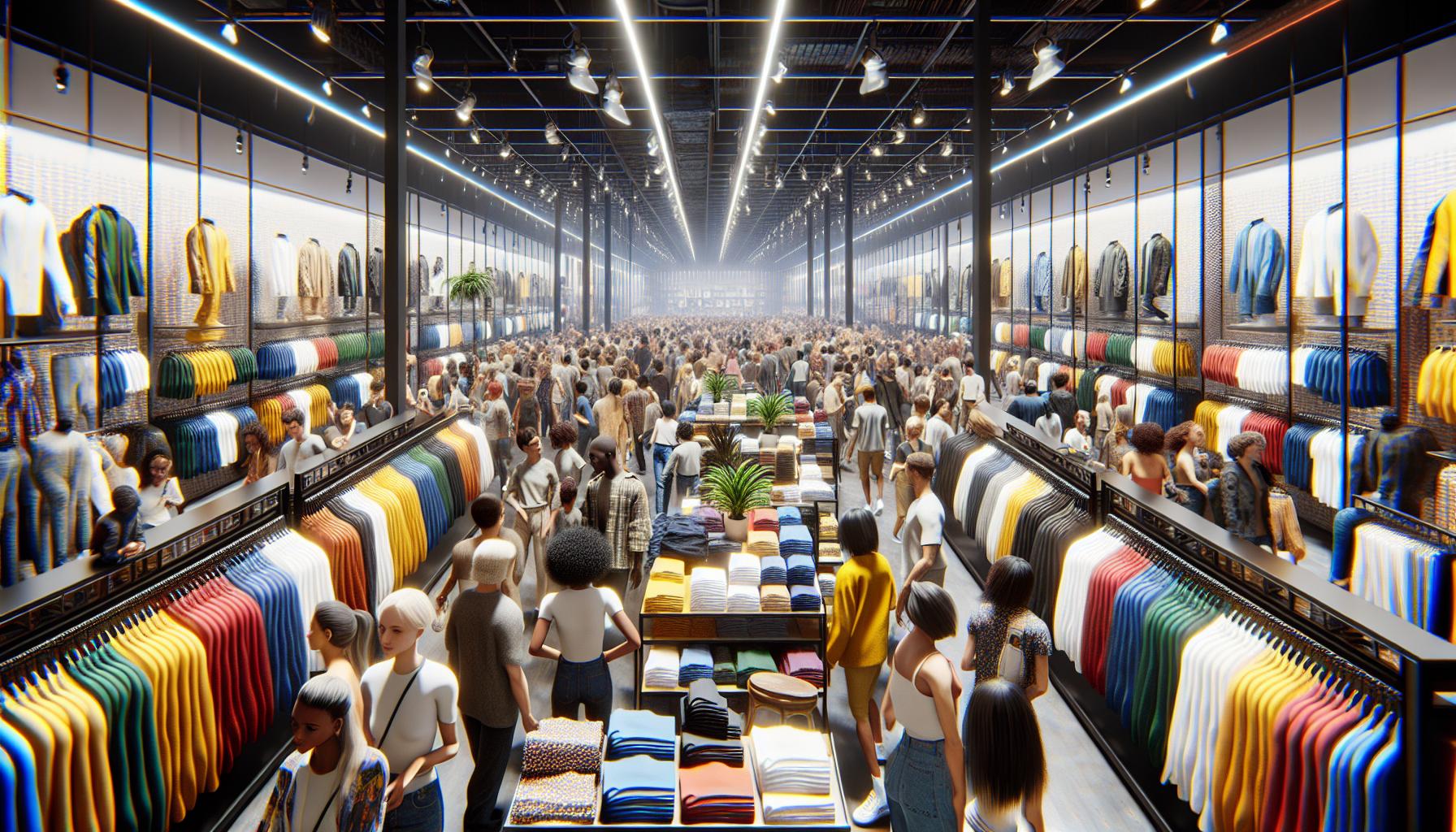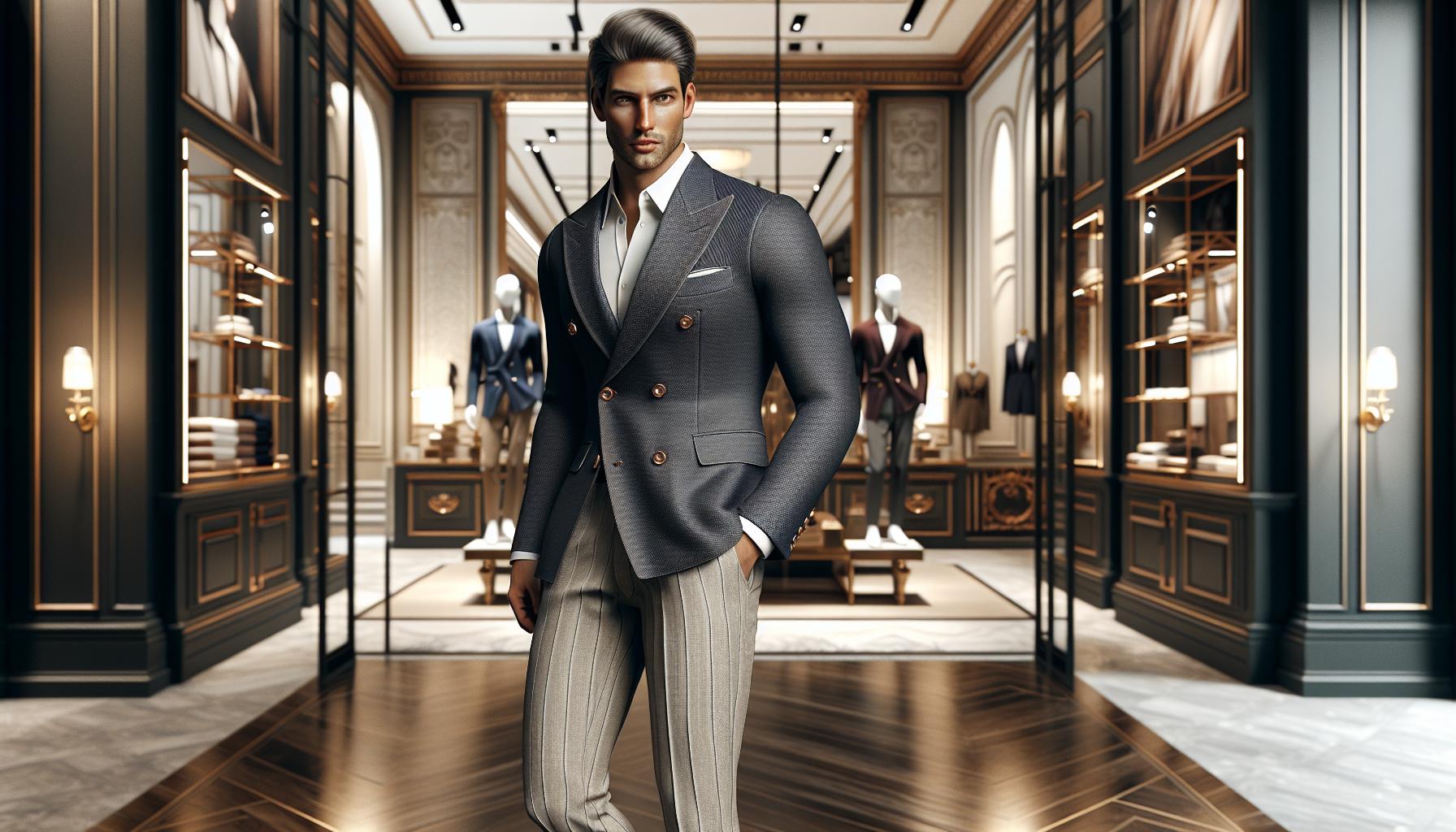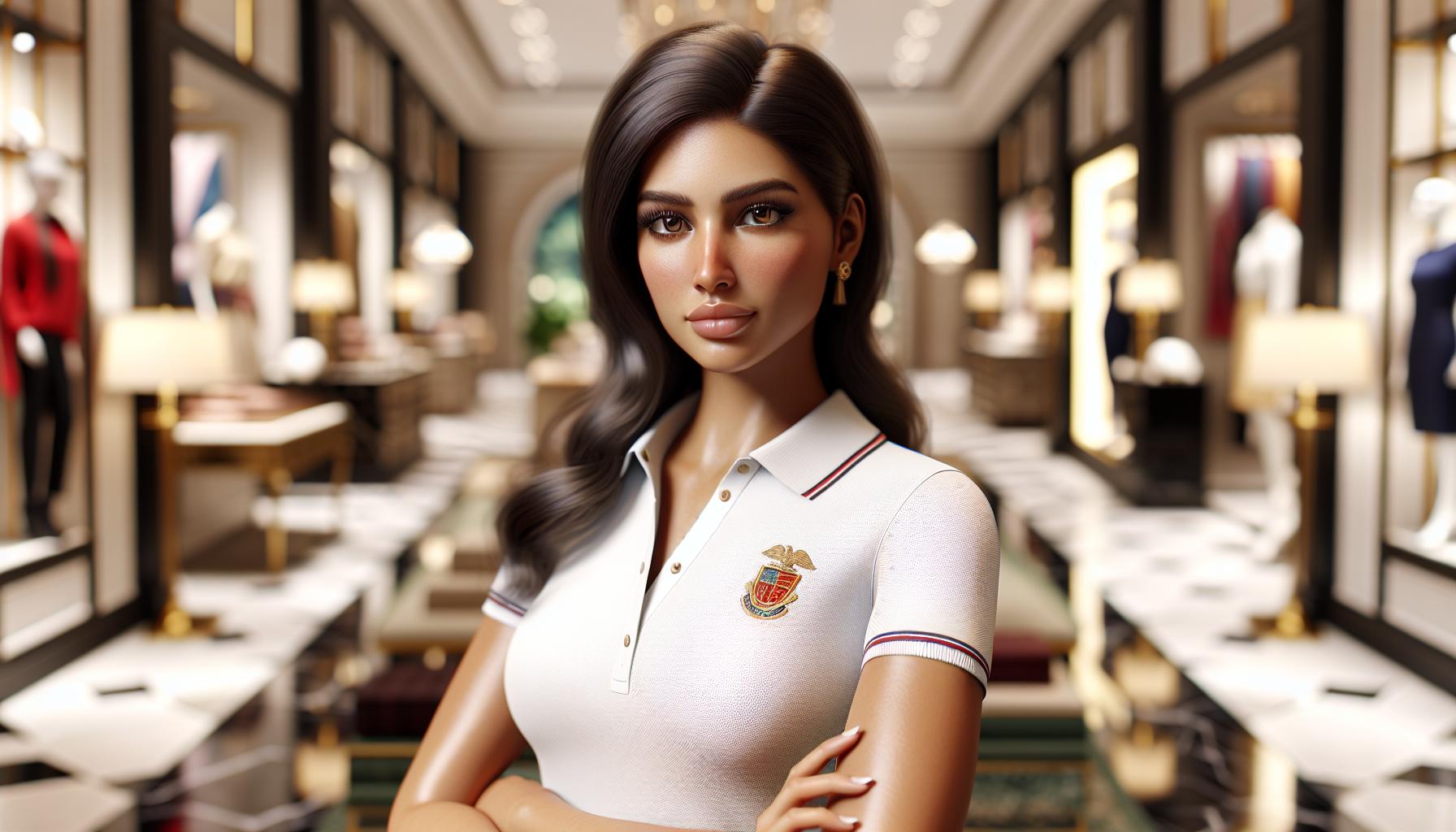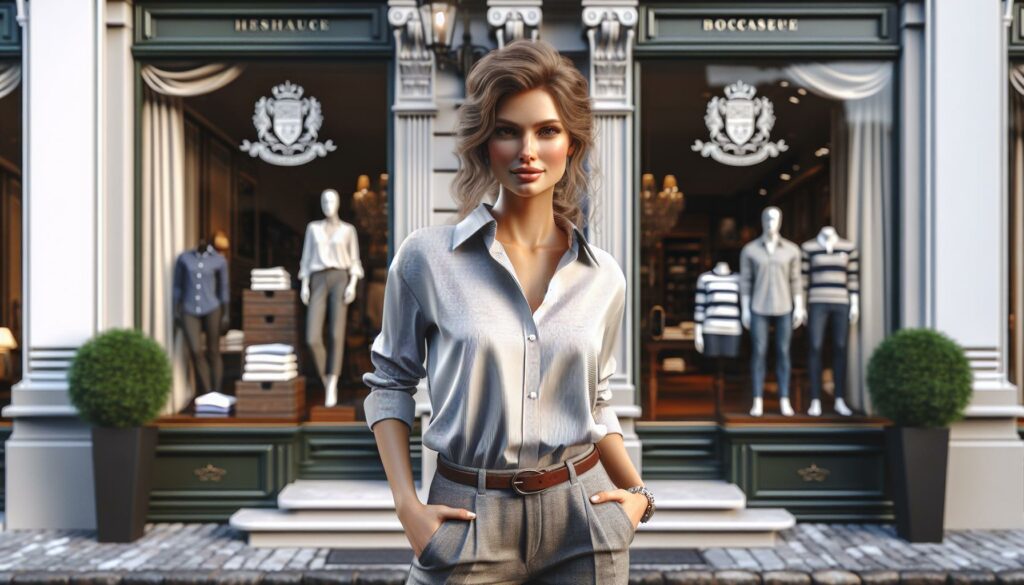Ralph Lauren has long been synonymous with classic American style, but as the fashion landscape evolves, I can’t help but wonder: is Ralph Lauren fast fashion? With the rise of brands that churn out trendy pieces at lightning speed, it’s crucial to examine where Ralph Lauren stands in this rapidly changing industry.
While the brand prides itself on timeless designs and quality craftsmanship, the question remains whether it’s adapting to the fast fashion model. As I dive into this topic, I’ll explore the brand’s production practices, pricing strategies, and its overall impact on sustainability. Join me as I uncover the truth behind Ralph Lauren’s place in the fashion world and determine if it truly fits the fast fashion mold.
- Ralph Lauren is a luxury brand known for its classic American style and high-quality craftsmanship, differentiating it from fast fashion brands that prioritize rapid production.
- The company’s premium pricing strategy reflects its commitment to quality, with prices ranging from $50 to several thousand dollars, contrasting sharply with the low-cost model of fast fashion.
- Ralph Lauren emphasizes sustainability, utilizing recycled materials and ethical manufacturing practices, aligning with growing consumer demands for responsible fashion options.
- The brand preserves its heritage by focusing on craftsmanship and limited production runs, thereby minimizing waste and promoting exclusivity.
- Consumer perception of Ralph Lauren is strongly tied to its reputation for timeless design and quality, fostering brand loyalty despite the pressures from fast fashion competitors.
- As sustainability becomes increasingly important, Ralph Lauren continues to address concerns while striving to enhance transparency around its sourcing and production practices.
Is Ralph Lauren Fast Fashion
Is Ralph Lauren Fast Fashion is a premier American fashion brand established in 1967. The company specializes in luxury clothing, accessories, and home decor, with a commitment to classic American style. Ralph Lauren’s iconic polo shirt symbolizes its emphasis on quality and timeless design.
Ralph Lauren produces a wide range of products, including menswear, womenswear, children’s clothing, footwear, and home furnishings. The brand stands out for its focus on craftsmanship, using high-quality materials that enhance durability and aesthetics.
In recent years, Ralph Lauren has sought to adapt to changing consumer preferences while maintaining its core identity. The brand incorporates sustainable practices, such as using recycled materials and promoting ethical manufacturing processes. This transition aims to align with evolving market demands without sacrificing its heritage.
Ralph Lauren’s pricing strategies reflect its position in the luxury market. Unlike fast fashion brands that prioritize low costs and rapid production cycles, Ralph Lauren upholds higher price points to signify quality and exclusivity. Despite occasional collaborations or special collections that may mimic fast fashion trends, the brand remains grounded in its classic roots.
Overall, Ralph Lauren embodies a distinct blend of traditional American aesthetics and modern adaptability, navigating the complex landscape between luxury fashion and fast fashion trends.
Understanding Fast Fashion

Fast fashion refers to a retail approach that focuses on the rapid production of high volumes of trendy clothing at lower prices. This model meets consumer demand for current styles, but it often prioritizes speed over sustainability.
Characteristics of Fast Fashion
- Rapid Production: Fast fashion brands quickly design, manufacture, and distribute clothing to keep up with trends. This results in product turns that can occur in a matter of weeks.
- Low Prices: The pricing model aims to make fashionable clothing accessible to a broader audience. Specific price points encourage impulse buys, attracting price-sensitive consumers.
- Trend-Driven Designs: Fast fashion relies heavily on current fashion trends, often emulating runway shows or celebrity styles to create collections that cater to ever-changing consumer preferences.
- Frequent Inventory Turnover: New collections appear every few weeks, leading to a “wear it now” mentality that encourages consumers to buy frequently and discard items quickly.
- Synthetic Materials: Many fast fashion items utilize inexpensive materials like polyester and nylon, which contribute to environmental degradation.
- Environmental Degradation: Fast fashion contributes to significant waste and pollution. The garment industry accounts for around 10% of global carbon emissions and creates immense amounts of textile waste.
- Labor Exploitation: Lower production costs often result from poor labor practices, including low wages, long hours, and unsafe working conditions in manufacturing countries.
- Consumer Behavior Change: Fast fashion cultivates a culture of disposability, leading consumers to view clothing as temporary items rather than investment pieces, which promotes overconsumption.
- Market Disruption: Established brands, like Ralph Lauren, face pressure to adapt their practices to compete with fast fashion’s rapid turnaround and pricing strategies.
- Sustainability Challenges: As awareness grows about the environmental and ethical ramifications of fast fashion, consumers increasingly demand sustainable and ethical alternatives, challenging brands to rethink their operations.
Analysis of Ralph Lauren’s Business Model

Is Ralph Lauren Fast Fashion business model reflects a commitment to quality and heritage while navigating modern market demands. I focus on its pricing strategy and production practices to assess its alignment with fast fashion.
Pricing Strategy
Ralph Lauren positions itself in the luxury market with a premium pricing strategy. Prices typically range from $50 for basic items to several thousand dollars for high-end pieces. This pricing reflects the brand’s emphasis on quality, craftsmanship, and exclusivity. Unlike fast fashion brands that employ aggressive discounting and low-price tactics, Ralph Lauren maintains prices that signify durability and sophistication. Seasonal collections showcase a blend of classic and contemporary designs, often at higher price points to ensure brand prestige while appealing to consumers seeking timeless luxury.
Production Practices
Is Ralph Lauren Fast Fashion prioritizes responsible production practices, differentiating itself from fast fashion brands. The company is committed to sustainability, utilizing recycled materials and implementing ethical manufacturing processes. It sources materials from certified suppliers who adhere to environmental and labor standards, ensuring that the production of its products aligns with its brand values. By focusing on limited production runs and crafted goods, Ralph Lauren minimizes waste and promotes a sustainable approach to fashion. This operational model underscores the brand’s heritage while addressing the growing consumer demand for ethical fashion, reinforcing its identity as a luxury brand rather than a fast fashion competitor.
Consumer Perception of Ralph Lauren

Consumers perceive Ralph Lauren as a luxury brand synonymous with quality and timeless design. While some may view it as straddling the line between luxury and fast fashion, its brand ethos tends to emphasize craftsmanship and heritage.
Brand Loyalty
Brand loyalty Is Ralph Lauren Fast Fashion remains robust, as many customers connect with its classic American style and high-quality products. This loyalty stems from consistent marketing that highlights the brand’s heritage and commitment to excellence. Many customers recognize the iconic polo shirt and associate it with a lifestyle that reflects sophistication and authenticity. Additionally, loyalty programs and exclusive collaborations cultivate a devoted customer base that appreciates the brand’s long-lasting value.
Sustainability Concerns
Sustainability concerns increasingly impact consumer perception of Ralph Lauren. Many consumers seek responsible brands that prioritize ethical practices. Ralph Lauren addresses these concerns through initiatives focused on sustainability, like using recycled materials and ethical manufacturing processes. Despite these efforts, some consumers still question whether the brand’s practices align with true sustainability, especially when compared to fast fashion brands. Increased transparency about sourcing and production practices can enhance trust and strengthen consumer confidence in the brand’s commitment to sustainability.
Comparing Ralph Lauren to Fast Fashion Brands
Ralph Lauren differentiates itself significantly from fast fashion brands through several key aspects: craftsmanship, pricing strategy, sustainability, and brand identity.
- Craftsmanship: Ralph Lauren is renowned for its quality craftsmanship, using high-quality materials in its offerings. Each product reflects attention to detail, contrasting with the often standardization and lower quality prevalent in fast fashion.
- Pricing Strategy: Ralph Lauren adopts a premium pricing strategy, with costs ranging from $50 for basic items to several thousand dollars for high-end pieces. This approach signals exclusivity and quality, while fast fashion brands leverage low prices to attract a broader audience.
- Sustainability Practices: Ralph Lauren commits to sustainable practices, utilizing recycled materials and ethical manufacturing processes. This commitment aims to mitigate environmental impact, unlike fast fashion brands that prioritize speed and cost-cutting over ethics and sustainability.
- Brand Identity: Ralph Lauren embodies classic American style, emphasizing timelessness over fleeting trends. Fast fashion brands thrive on rapid trend cycles, with frequent inventory turnover that pushes consumers towards disposable fashion.
Is Ralph Lauren Fast Fashion also focuses on limited production runs, ensuring exclusivity while minimizing waste. This approach underscores the brand’s dedication to sustainability and quality, positioning it firmly as a luxury brand rather than a fast fashion contender. Customers view Ralph Lauren as synonymous with lasting style, rooted in heritage, and reflect a preference for authenticity over ephemeral trends.
Ralph Lauren stands as a testament to quality and timeless design in a world often dominated by fast fashion. While the brand adapts to modern consumer demands, it remains committed to craftsmanship and sustainability. By focusing on ethical practices and limited production runs, Ralph Lauren differentiates itself from the rapid turnover and low-quality offerings typical of fast fashion.
As consumers increasingly seek responsible alternatives, Is Ralph Lauren Fast Fashion dedication to luxury and heritage positions it uniquely in the evolving fashion landscape. It’s clear that the brand values its identity, prioritizing lasting style over fleeting trends, which resonates with those who appreciate quality over quantity.



